Gifts
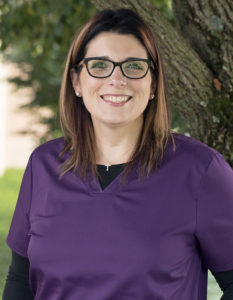
Helen Haddich, Homeland Hospice Nurse, has a gift of expression. We are grateful to her for allowing us to share the following article from her blog “From Saving to Sending, Hospice Isn’t Just About Dying.” Prior to becoming a Hospice Nurse, Helen’s journey included ten years of being a Med Surg, ICU, and Perianesthesia Nurse.
>>>
Anyone who knows me, knows I am not so great at wrapping gifts. Don’t misunderstand me, I am a great gift giver. I take the time to think and plan each detail of the gift. The rush knowing how much the receiver will ultimately love the present makes the effort of wrapping so totally worth it.
It is Christmas Eve … the tree is dressed in its brightest … the presents are tucked neatly around. The glow of the lights is mesmerizing and has me lost in thought. Being a hospice nurse is full of experiences that sometimes take time to process. It is emotional blender of thoughts and feelings. But, one undeniable truth is that for all of its difficulties, it presents so many different gifts, each so valuable but, not one more so than the next.
Thank you for the gift of understanding – for teaching me to open the eyes of my heart and not make snap judgements.
Thank you for the gift of humility – for allowing me to see people, who are in the valleys of their lives and put aside their pride to ask for help.
Thank you for the gift of forgiveness – for showing me that regardless of whatever the rift, fight or misunderstanding, of you truly want to forgive, it can be done.
Thank you for the gift of hospitality- for allowing me to come into your home and even though you are dying, you ask me if I want something to drink or eat.
Thank you for the gift of love – for allowing me to witness as you watch your husband slip away while you, through tears, thank him for allowing you to love him.
Thank you for the gift of honesty – for opening my eyes to the true meaning of baring your soul – flaws and all.
Thank you for the gift of hope – for that little spark that still glows like embers with the secret wish that health may find its way back.
Thank you for the gift of appreciation – it goes without saying that I take so much less for granted. The fact that I can open my eyes in the morning is truly a gift.
Thank you for the gift of acceptance – we might be different shades, different backgrounds and have different beliefs, but, you accept me wholeheartedly in your homes
Finally, thank you for the gift of just simply allowing me to care for you. It is such a profound honor beyond words. Each patient finds a way into my heart, staking their own spot. Hospice has brought me so many gifts and experiences that no matter what I do, it will never even approach. The scales are horribly unbalanced in my favor.
The gifts of hospice don’t come wrapped in boxes and are often not even tangible. They can’t be purchased or ordered. The gifts of hospice are never ending and last a lifetime. They stay locked safely in my heart, never to be broken or taken. How can I ever express gratitude? The truth is I can’t, but, will spend forever trying.
Homeland Hospice serves 14 communities throughout Central Pennsylvania by providing end-of-life care either in a person’s home or wherever they reside, including nursing facilities. Homeland Hospice also provides bereavement support to families for a full 13 months following the death of their loved one. This service is available to anyone in the community who is experiencing grief.
To learn more, please contact Homeland Hospice at (717) 221-7890.

 When parents, grandparents, aunts, uncles, cousins, and other family members gather around the holiday dinner table, conversations are typically sprinkled with small talk about the weather, football scores, and the latest gift-giving trends.
When parents, grandparents, aunts, uncles, cousins, and other family members gather around the holiday dinner table, conversations are typically sprinkled with small talk about the weather, football scores, and the latest gift-giving trends.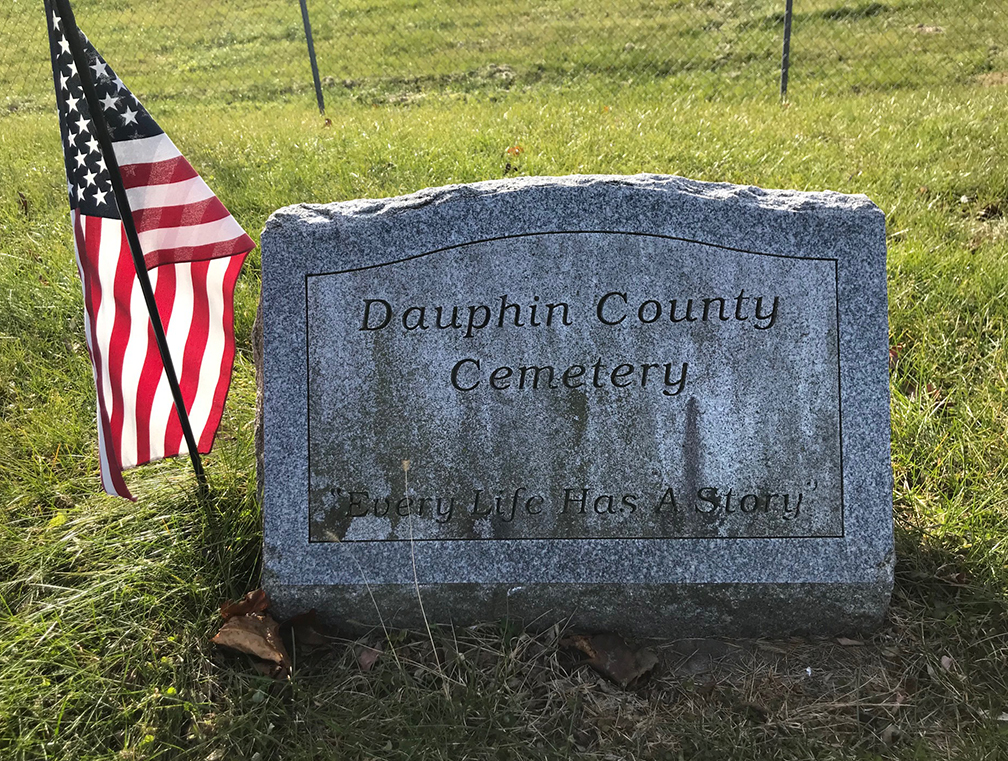 Every life has a story. These words are engraved on a simple stone at the entrance of the Dauphin County Cemetery, also known as Potter’s Field. The site serves as the final resting place for more than 800 unclaimed remains. World War II Navy Veteran Frank Bakanus, Jr., from Derry Township, is buried here. He is the only known veteran who has been identified and given a veteran marker on his grave.
Every life has a story. These words are engraved on a simple stone at the entrance of the Dauphin County Cemetery, also known as Potter’s Field. The site serves as the final resting place for more than 800 unclaimed remains. World War II Navy Veteran Frank Bakanus, Jr., from Derry Township, is buried here. He is the only known veteran who has been identified and given a veteran marker on his grave. On December 12, Frank and all of the unidentified veterans interred at the cemetery were remembered for their service during a wreath-laying ceremony led by Homeland Hospice. Hospice volunteers and staff placed wreaths and flags representing each branch of the military on the fence outlining the cemetery. Homeland Hospice is a hospice program that serves communities throughout Central Pennsylvania.
On December 12, Frank and all of the unidentified veterans interred at the cemetery were remembered for their service during a wreath-laying ceremony led by Homeland Hospice. Hospice volunteers and staff placed wreaths and flags representing each branch of the military on the fence outlining the cemetery. Homeland Hospice is a hospice program that serves communities throughout Central Pennsylvania.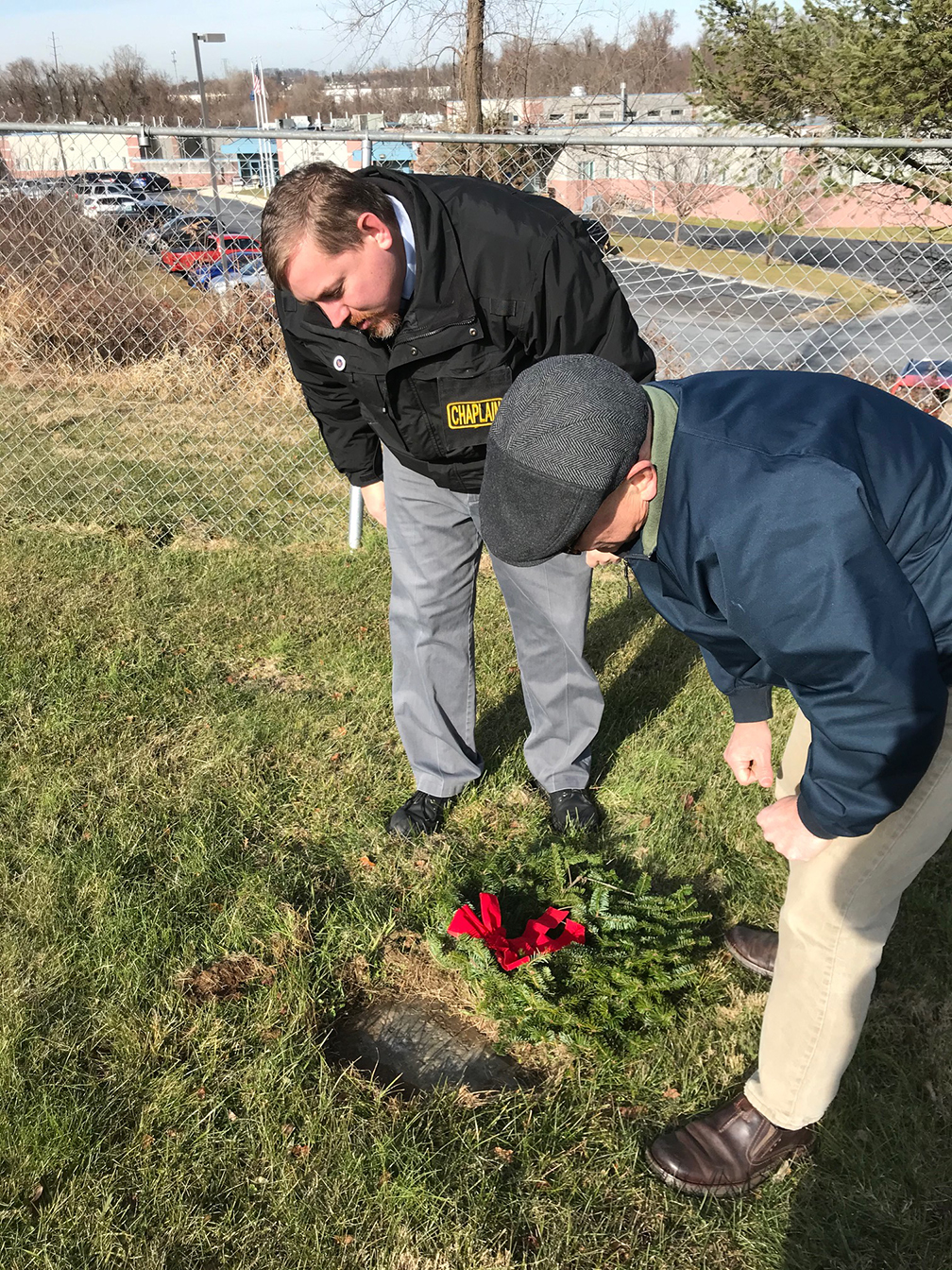 The team at Homeland Hospice selected the Dauphin County Cemetery because of its similar mission and history with Homeland. One of the earliest markers at the cemetery is dated July 20, 1870. It began and remains a final resting place for individuals who have nowhere else to go.
The team at Homeland Hospice selected the Dauphin County Cemetery because of its similar mission and history with Homeland. One of the earliest markers at the cemetery is dated July 20, 1870. It began and remains a final resting place for individuals who have nowhere else to go.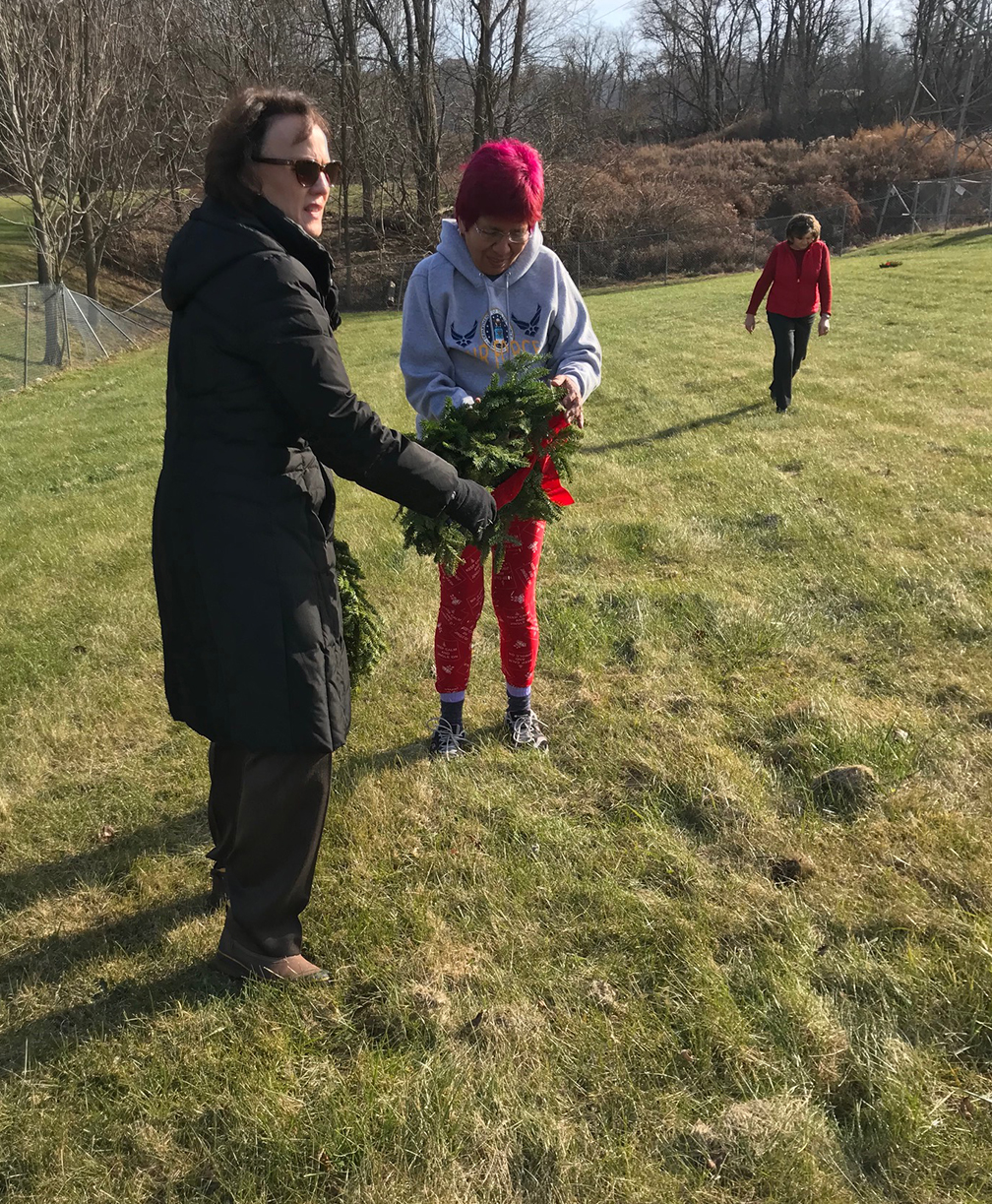 “My husband was a veteran,” says Lorna Owens, Homeland Hospice volunteer. “This project holds a very special place in my heart. I’m honored to participate.”
“My husband was a veteran,” says Lorna Owens, Homeland Hospice volunteer. “This project holds a very special place in my heart. I’m honored to participate.”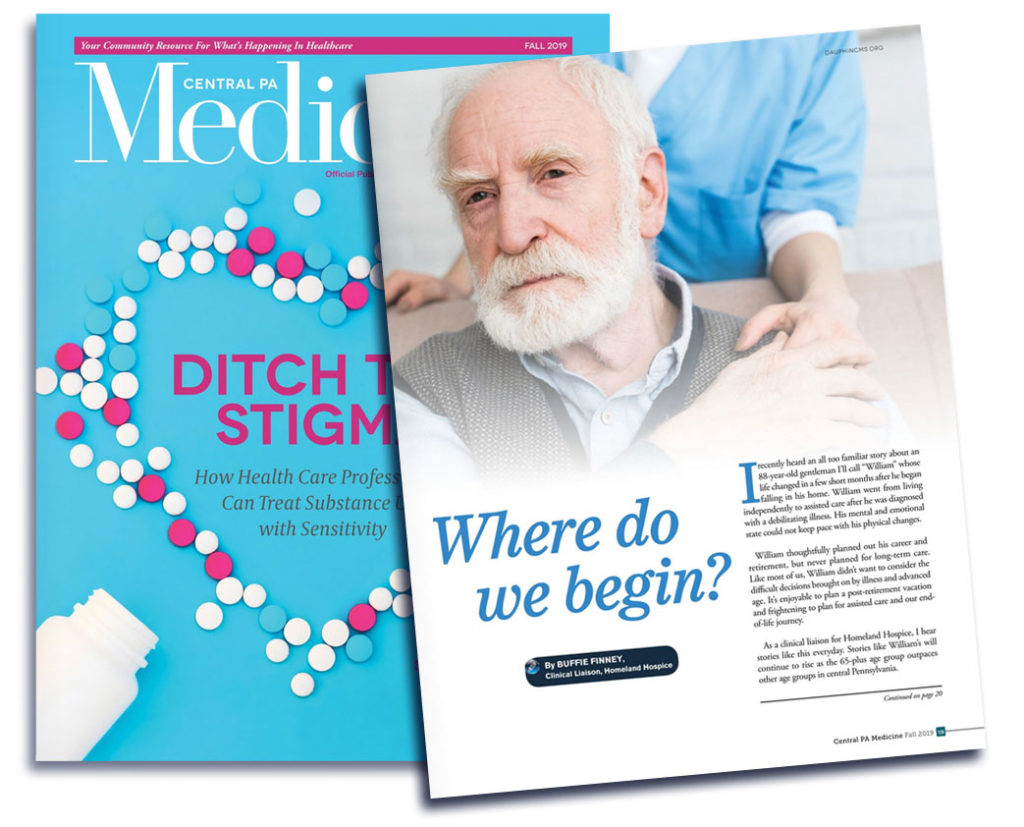 I recently heard an all too familiar story about an 88-year-old gentleman I’ll call “William” whose life changed in a few short months after he began falling in his home. William went from living independently to assisted care after he was diagnosed with a debilitating illness. His mental and emotional state could not keep pace with his physical changes. William thoughtfully planned out his career and retirement, but never planned for long-term care. Like most of us, William didn’t want to consider the difficult decisions brought on by illness and advanced age. It’s enjoyable to plan a post-retirement vacation and frightening to plan for assisted care and our end-of- life journey.
I recently heard an all too familiar story about an 88-year-old gentleman I’ll call “William” whose life changed in a few short months after he began falling in his home. William went from living independently to assisted care after he was diagnosed with a debilitating illness. His mental and emotional state could not keep pace with his physical changes. William thoughtfully planned out his career and retirement, but never planned for long-term care. Like most of us, William didn’t want to consider the difficult decisions brought on by illness and advanced age. It’s enjoyable to plan a post-retirement vacation and frightening to plan for assisted care and our end-of- life journey.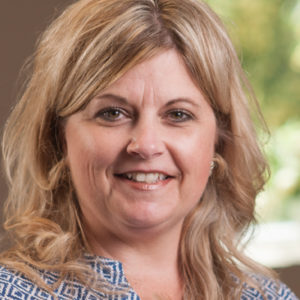 My advice to patients and families is to take it one step at a time. Like any journey, identify where you are today and where you can be in the near future safely. This may not be where the patient wants to be, but where he or she needs to be based on the diagnosis. This plan of care may continue to change depending on how the patient responds to factors like rehabilitation or the progression of the disease.
My advice to patients and families is to take it one step at a time. Like any journey, identify where you are today and where you can be in the near future safely. This may not be where the patient wants to be, but where he or she needs to be based on the diagnosis. This plan of care may continue to change depending on how the patient responds to factors like rehabilitation or the progression of the disease.
